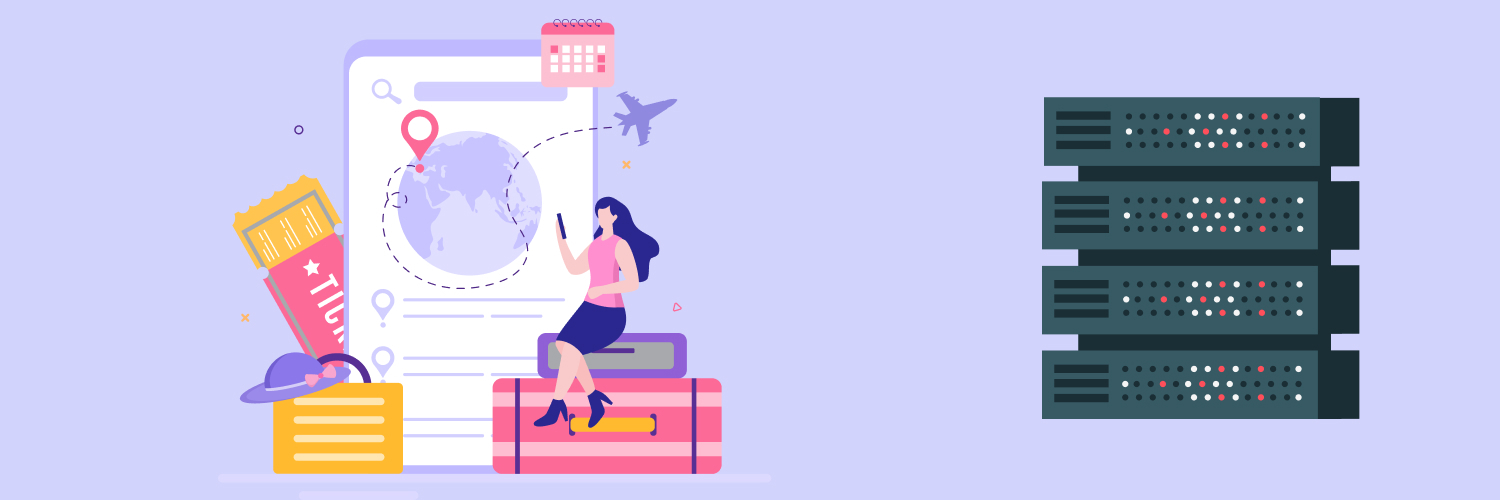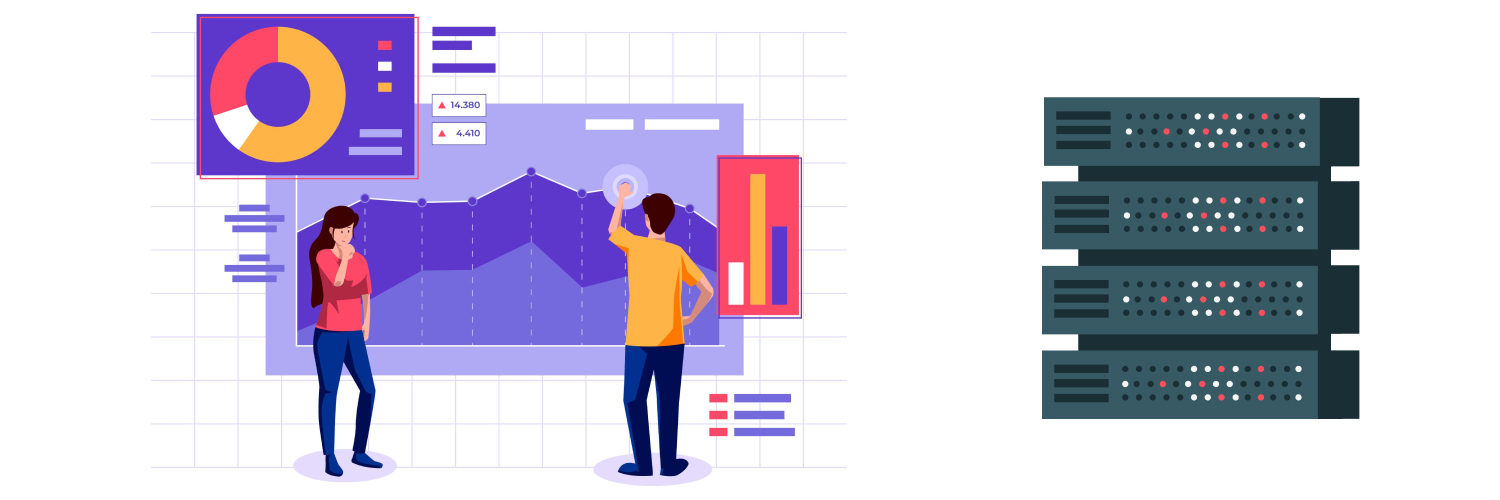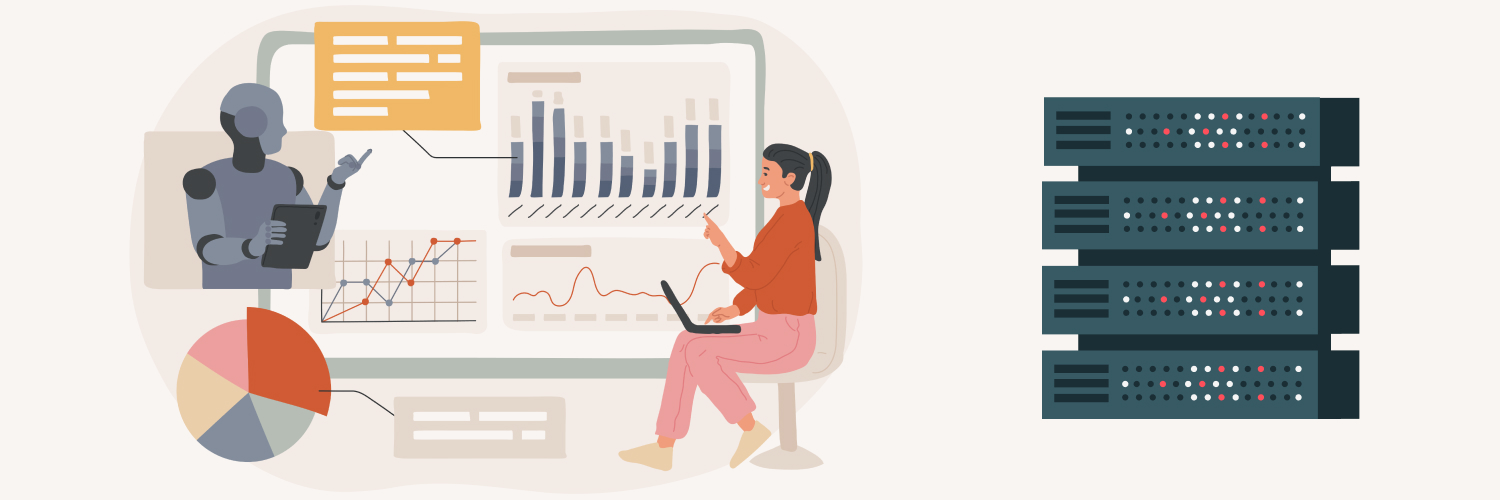Why Proxies Are A Game-Changer For Web Scraping Financial Data
As a professional in the financial technology (fintech) world, you know that organizations are under constant pressure to innovate while ensuring security, compliance, and efficiency. As top fintech companies work to navigate this complex landscape, one often-overlooked tool has emerged as a game-changer: Proxies.
These powerful intermediaries can enhance data security, streamline operations, and provide critical insights into market dynamics. Of course, information is king and fintech data mining is a constant need. And this is where adopting proxy solutions can come into play. Not only do they safeguard sensitive information, they can help with fintech screen scraping, data aggregation and other alternative data for Fintech innovation. In other words, web scraping financial data via proxies can offer a competitive edge in an increasingly crowded market.
Let’s explore how proxies are revolutionizing the fintech industry and why they should be an essential part of the world’s top fintech companies’ strategies. Whether you’re a startup or an established player, understanding the benefits of proxies could be the key to unlocking new opportunities for growth and innovation.
What Are Proxies?

Proxies are intermediary servers that act as gateways between users and the internet.
When a user sends a request to access a website, the request first passes through the proxy server, which then forwards it to the target server.
The target server responds to the proxy, which, in turn, sends the information back to the user. This process masks the user’s IP address and provides a layer of anonymity. It makes proxies a valuable tool for various online activities.
Types of Proxies

Proxies come in several different forms. The following are some of the most commonly used options:
Residential Proxies
Residential proxies use IP addresses provided by Internet Service Providers (ISPs) to real residential users. This makes them appear as legitimate users to websites, significantly reducing the likelihood of being blocked.
Residential proxies are ideal for activities that require high anonymity, such as web scraping, ad verification, and market research. Because they mimic real user behavior, residential proxies are effective for bypassing geo-restrictions and accessing localized content.
Static ISP Proxies
Static ISP proxies are IP addresses assigned by ISPs to a single user or organization for extended periods. Unlike residential proxies, these IPs are not associated with regular residential users but still maintain a level of trustworthiness in the eyes of websites.
Static ISP proxies are particularly useful for businesses that require a stable IP for tasks such as managing social media accounts, where consistency is essential for avoiding detection or bans.
Rotating ISP Proxies
Rotating ISP proxies automatically change IP addresses at set intervals or with each request. This feature allows users to make numerous requests without being flagged or blocked by websites, which is particularly useful for data scraping and automated tasks.
By constantly cycling through a pool of IP addresses, rotating ISP proxies provide enhanced anonymity and reduce the risk of getting banned, making them an effective solution for intensive data collection.
Static Data Center Proxies
Static data center proxies are hosted on servers in data centers and assigned a fixed IP address.
They are not associated with residential users, which can make them more detectable by websites. However, they offer high speed and reliability, making them suitable for tasks like bulk data scraping and web testing.
Static data center proxies provide a good balance between performance and stability, especially for businesses that require consistent access. If you have an existing Fintech data center, you’re likely familiar with this form of static location.
Rotating Data Center Proxies
Rotating data center proxies function similarly to static data center proxies but automatically rotate their IP addresses. This allows for a higher volume of requests without the risk of being blocked.
Rotating data center proxies are particularly beneficial for web scraping, market research, and ad verification. They provide users with the ability to access large amounts of data efficiently while maintaining anonymity.
Mobile Proxies
Mobile proxies use IP addresses assigned to mobile devices, making them ideal for simulating mobile user behavior. These proxies are particularly useful for testing mobile applications, scraping data from mobile-specific websites, and bypassing restrictions that may be applied to desktop traffic.
Mobile proxies offer a unique advantage due to their ability to mimic real mobile user activity. This makes them invaluable for businesses focused on mobile marketing and development.
How Do Proxies Work?

Proxies work as intermediaries between users and the internet, facilitating requests and responses to enhance privacy, security, and performance. When a user wants to access a website, their request first goes to the proxy server instead of directly to the target site.
Here’s how the process unfolds:
- Request Initiation: The user’s device sends a request to access a specific webpage. This request is directed to the proxy server rather than the website itself.
- IP Address Masking: The proxy server receives the request and replaces the user’s IP address with its own. This process anonymizes the user’s identity, making it appear as though the request is coming from the proxy rather than the user’s device.
- Forwarding the Request: The proxy server forwards the modified request to the target website. At this stage, the website sees the proxy’s IP address and responds to it, unaware of the original user behind the request.
- Response Handling: Once the target site sends the requested data back to the proxy server, the proxy processes this response.
- Returning Data to the User: Finally, the proxy server forwards the data back to the user’s device. This response includes the content of the webpage, images, or any other requested information.
Proxies can also perform additional functions, such as caching frequently accessed content to improve load times, filtering out harmful content, and logging user activity for security monitoring.
By effectively managing the flow of requests and responses, proxies enhance user privacy, improve access to restricted content, and increase overall browsing efficiency. This makes them invaluable tools for individuals and businesses alike, especially in contexts requiring anonymity and security.
Benefits of Web Scraping Financial Data with Proxies

Financial technology companies face a myriad of challenges ranging from data security to compliance with stringent regulations. One of the most effective solutions for overcoming these challenges is the use of proxies.
By acting as intermediaries between users and the internet, proxies offer a range of benefits that can significantly enhance the operational capabilities of fintech firms. Here’s a closer look at why fintech companies need proxies.
Enhanced Security
The best fintech companies to work for care about security. Security is paramount in the fintech industry, where sensitive customer data and financial transactions are at risk of cyberattacks.
Proxies provide an additional layer of security by masking the IP addresses of users. This anonymity helps protect against Distributed Denial of Service (DDoS) attacks and other malicious activities.
Additionally, proxies can be configured to filter out harmful content and block access to known malicious sites. This further safeguards company networks and sensitive data.
Compliance with Regulations
Fintech companies must navigate a complex web of regulations, including the General Data Protection Regulation (GDPR) and the Payment Card Industry Data Security Standard (PCI DSS).
Proxies can assist in maintaining compliance by anonymizing user data during transactions and data collection processes. This anonymity helps mitigate the risks associated with handling sensitive information, making it easier for companies to adhere to regulatory requirements.
Fintech Data Mining and Collection
Data is a critical asset in the fintech world, driving decision-making and strategic planning. Web scraping financial data is, obviously, utilized heavily by various industries, and fintech screen scraping (scraping data for only the visible information) is used heavily by companies based around financial services.
Proxies enable fintech data aggregators to collect accurate information from all corners of the world with a reduced rise of being blocked or limited by target websites. For example, when gathering competitive intelligence or monitoring market trends, proxies allow companies to scrape data efficiently.
Residential proxies, in particular, are valuable for this purpose as they appear as legitimate users, reducing the likelihood of detection.
Fintech Data Mining Geo-Restricted Content
Fintech companies often operate on a global scale and require access to localized data for effective decision-making. When using techniques like screen scraping, Fintechs need to replicate the necessary location in order to determine the accurate and correct information.
Proxies enable businesses to bypass geographical restrictions, allowing them to access content that may be limited in certain regions. This capability is especially beneficial for market analysis, where understanding local trends and consumer behavior is essential for developing tailored financial products and services.
Load Balancing and Performance Optimization
During peak traffic times, fintech applications may experience slowdowns that can lead to a negative user experience.
Proxies can help manage this traffic by distributing it across multiple servers, ensuring that no single server becomes overwhelmed. This load balancing enhances performance and minimizes downtime, allowing fintech companies to provide a seamless user experience even during high-demand periods.
Anonymity for Testing and Development
For fintech companies involved in developing new applications or services, anonymity is often crucial during testing phases.
Proxies allow developers to simulate user behavior without revealing their actual IP addresses. This capability is particularly useful for testing financial applications, as it enables developers to observe how their software interacts with various web services and environments while keeping the testing process secure.
Competitive Intelligence and Market Analysis
In a highly competitive landscape, staying ahead of rivals is essential. Proxies empower fintech companies to gather valuable insights into competitor strategies and market dynamics.
By using proxies for web scraping, firms can analyze competitor pricing, product offerings, and customer feedback without risking detection. This intelligence can inform strategic decisions and marketing tactics, giving companies a significant advantage.
Efficient User Experience
More than just supporting an internal Fintech data analysis, proxies can enhance user experience by reducing latency and improving load times.
When a proxy caches frequently accessed content, it can deliver that content more quickly to users. This speed is critical in the fintech industry, where customers expect instant access to financial information and services. A faster, more reliable experience can lead to higher customer satisfaction and retention.
How to Choose a Proxy Provider

Selecting an appropriate proxy provider is crucial for fintech companies seeking to optimize their operations and ensure security. Given the sensitive nature of financial data and the stringent regulations governing the industry, a well-chosen proxy provider can significantly enhance a company’s capabilities.
Here are several key factors the world’s best fintech companies should consider when selecting a proxy provider:
Reliability and Uptime
Fintech operations often require continuous access to data and services.
A reliable proxy provider should guarantee high uptime rates. Downtime can lead to lost revenue, missed opportunities, and customer dissatisfaction.
It’s essential to review a provider’s historical performance and read testimonials to ensure they can deliver consistent service.
Speed and Performance
In the fast-paced financial sector, speed is critical. Proxies should facilitate quick data retrieval and minimal latency to provide a seamless user experience.
A provider should offer high-speed connections and the capacity to handle large volumes of requests without slowdowns. Performance metrics should be transparent, allowing companies to gauge how well the service meets their needs.
Type of Proxies Offered
Different use cases call for different types of proxies.
Fintech companies must consider whether they need residential, data center, or mobile proxies, depending on their specific applications. For example, residential proxies may be ideal for web scraping, while static data center proxies can enhance performance for internal applications.
A good provider should offer a range of options tailored to various needs.
Security Features
Given the sensitivity of financial data, robust security measures are paramount.
A reliable proxy provider should employ encryption protocols, offer IP whitelisting, and have features to prevent DDoS attacks. Additionally, understanding how the provider manages data privacy and complies with regulations like GDPR can help ensure that sensitive information remains secure.
Customer Support
Effective customer support can make a significant difference, especially when issues arise.
A proxy provider should offer responsive and knowledgeable support, including multiple channels like live chat, email, and phone. Access to timely assistance can help fintech companies resolve problems quickly, minimizing disruption to their operations.
Scalability
As fintech companies grow, their needs may change. Your business might expand into new markets, you may be considering new services, or you simply might outgrow your existing Fintech data center.
A suitable proxy provider should offer scalable solutions that can adapt to increasing demands, whether that means more IP addresses, higher bandwidth, or additional features. Scalability ensures that as a company expands, its proxy service can evolve alongside it.
Start Web Scraping Financial Data for Your Fintech Today

Leveraging proxies can provide top fintech companies like yours with the critical advantages needed to thrive. From enhancing security and ensuring compliance to improving data collection and user experience, the benefits of using proxies are manifold. They empower fintech firms to innovate while safeguarding sensitive information and accessing valuable insights.
If you’re ready to explore how proxy solutions can transform your operations, consider starting a free trial with Rayobyte. Our reliable and high-performance proxy services are designed to meet the unique needs of fintech companies, offering a range of options tailored to your specific applications.
Don’t miss out on the opportunity to elevate your fintech strategy. Sign up for a free trial today and discover the difference that Rayobyte can make for your business!
The information contained within this article, including information posted by official staff, guest-submitted material, message board postings, or other third-party material is presented solely for the purposes of education and furtherance of the knowledge of the reader. All trademarks used in this publication are hereby acknowledged as the property of their respective owners.




